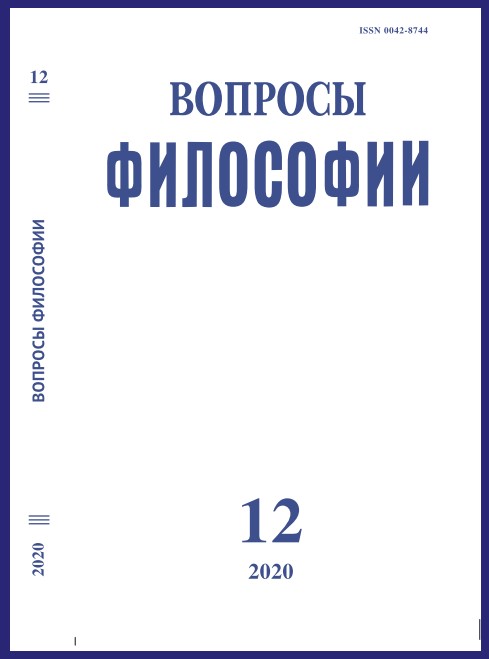Phenomenological Hermeneutics Looking Forwards to Its Cognitive Synthesis
DOI:
https://doi.org/10.21146/0042-8744-2020-12-93-103Keywords:
Husserl, Schütz, Heidegger, Ricœur, Chomsky, phenomenology, hermeneutics, interpretation, meaning, life-world, relevance, conflict of interpretationsAbstract
Some basic mainstreams of phenomenological hermeneutics’ further development in XX century’s philosophy, such as hermeneutics of the life-world (“late” E. Husserl’s and phenomenological sociology’s project), existential-phenomenological hermeneutics as subjective ontology (M. Heidegger’s project) and “synthetic” post-structural hermeneutics of P. Ricœur have been presented in this paper. Phenomenological ideas of “early” E. Husserl presented in his “Logical Investigations” as well as transcendental-phenomenological project’s evolution into “Phenomenology of the Life-World” in the “late” Husserl’s works have also been examined in this paper. Ideal foundations of cognitive hermeneutics’ transformation into M. Heidegger’s subjective ontology Dasein project have been explicitly shown in the paper proposed. Philosophical preconditions of generalization (and partly re-interpretation) some previous phenomenological hermeneutics’ achievements and constituting “synthetic” post-structural hermeneutics as interdisciplinary synthesis of phenomenology, post-structural linguistics and psychoanalysis have clearly been demonstrated. It has also been displayed to what extent some achievements of “synthetic” hermeneutics have been proceeded in contemporary Russian humanitarians’ works.

